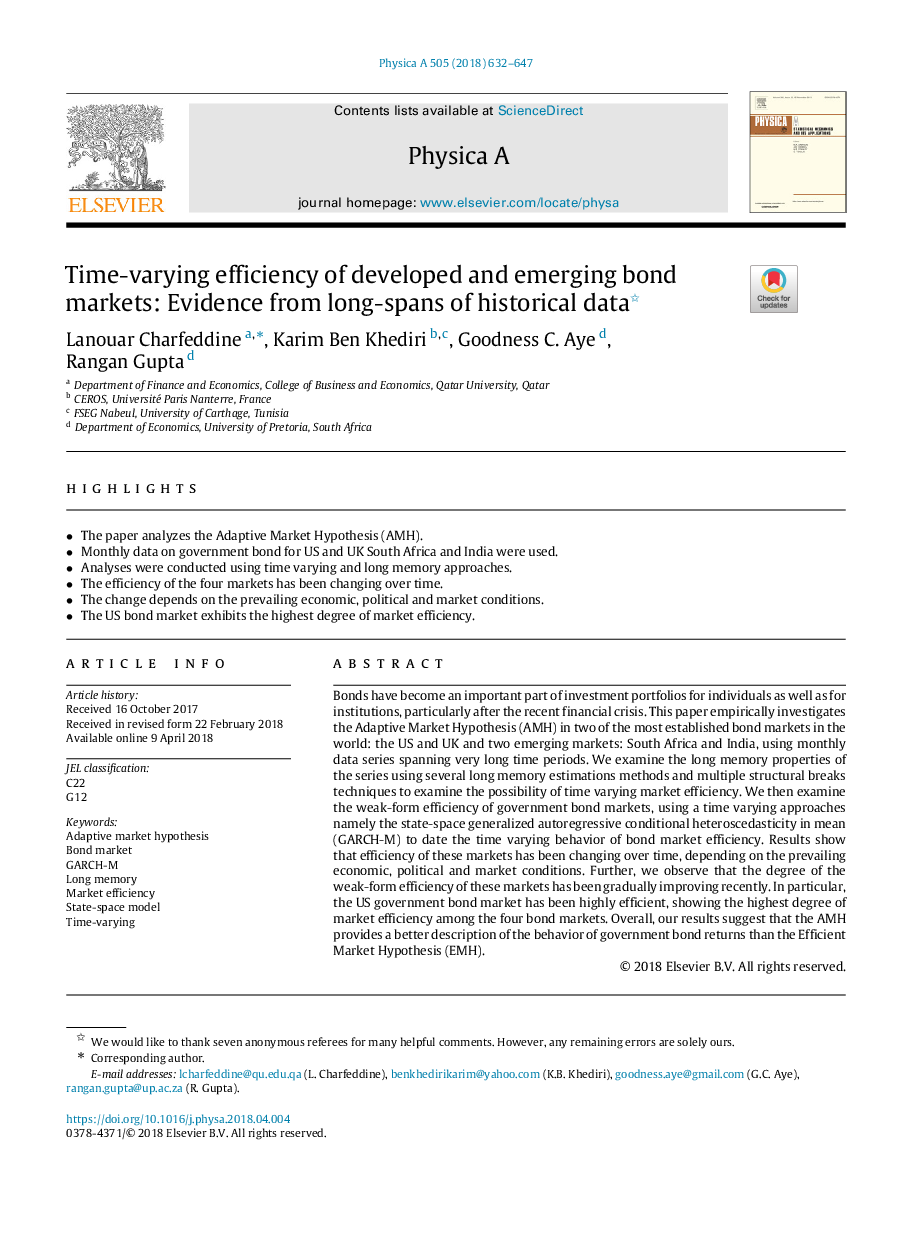| Article ID | Journal | Published Year | Pages | File Type |
|---|---|---|---|---|
| 7375348 | Physica A: Statistical Mechanics and its Applications | 2018 | 16 Pages |
Abstract
Bonds have become an important part of investment portfolios for individuals as well as for institutions, particularly after the recent financial crisis. This paper empirically investigates the Adaptive Market Hypothesis (AMH) in two of the most established bond markets in the world: the US and UK and two emerging markets: South Africa and India, using monthly data series spanning very long time periods. We examine the long memory properties of the series using several long memory estimations methods and multiple structural breaks techniques to examine the possibility of time varying market efficiency. We then examine the weak-form efficiency of government bond markets, using a time varying approaches namely the state-space generalized autoregressive conditional heteroscedasticity in mean (GARCH-M) to date the time varying behavior of bond market efficiency. Results show that efficiency of these markets has been changing over time, depending on the prevailing economic, political and market conditions. Further, we observe that the degree of the weak-form efficiency of these markets has been gradually improving recently. In particular, the US government bond market has been highly efficient, showing the highest degree of market efficiency among the four bond markets. Overall, our results suggest that the AMH provides a better description of the behavior of government bond returns than the Efficient Market Hypothesis (EMH).
Keywords
Related Topics
Physical Sciences and Engineering
Mathematics
Mathematical Physics
Authors
Lanouar Charfeddine, Karim Ben Khediri, Goodness C. Aye, Rangan Gupta,
